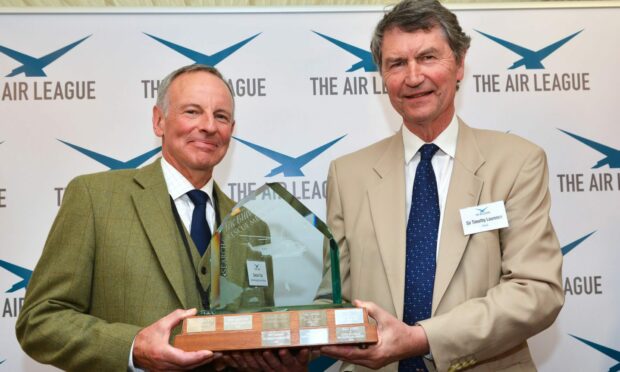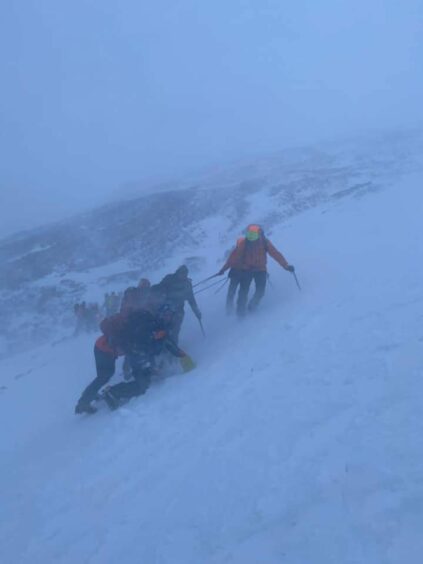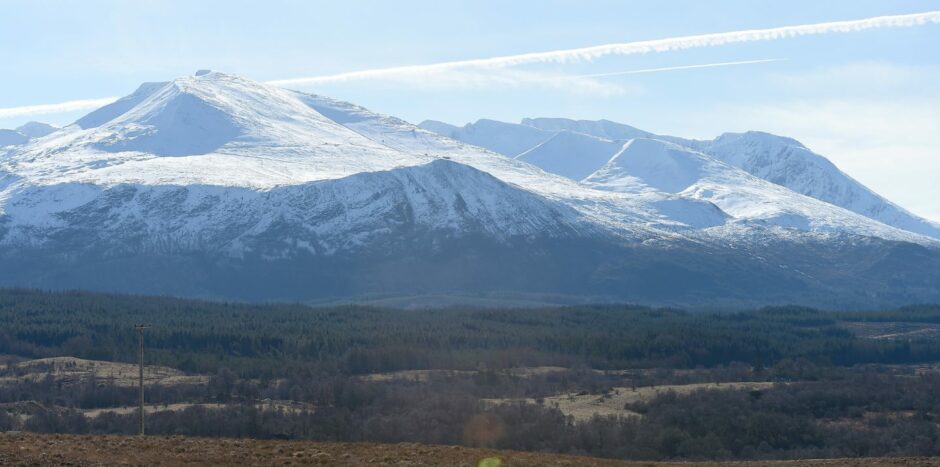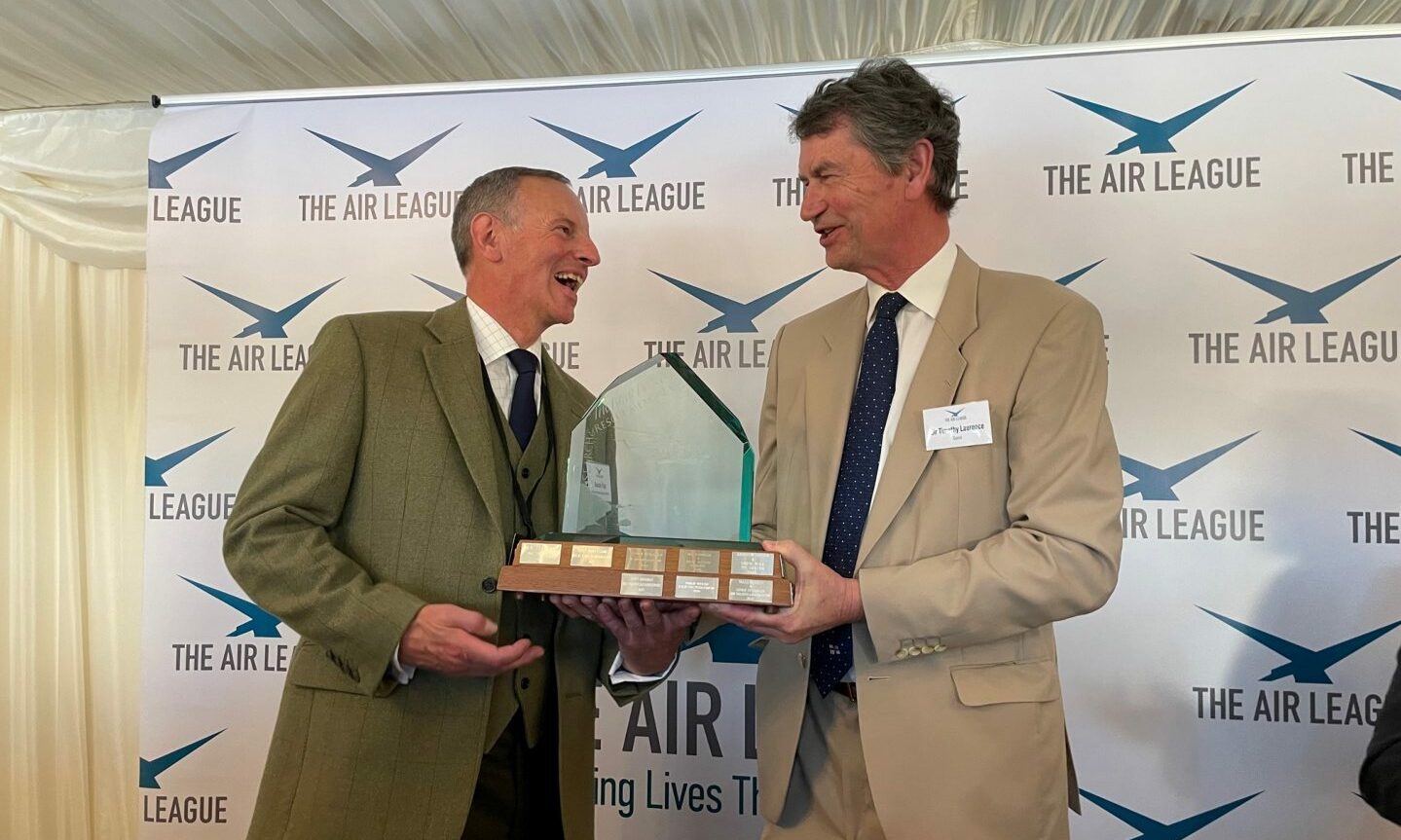A coastguard paramedic has received a national award for his heroic efforts in rescuing more than 20 stranded climbers from Ben Nevis.
Duncan Tripp, a winch paramedic aboard the Inverness search and rescue helicopter, navigated through near zero visibility, freezing temperatures and gale-force winds to save a group of 24 climbers, scaling the UK’s highest mountain.
The rescue worker was part of a major operation carried out on the Scottish peak on March 8, 2022.
Risking his own life, Mr Tripp scaled the treacherous snow-capped mountain paths on foot for more than six hours, carrying 30kg of life-saving equipment.
Thanks to his leadership, sheer determination and courage, a total of 24 people made it off the mountain alive.
A 28-year-old man died following a horror fall of nearly 1,000ft.
Meanwhile, two soldiers were taken to hospital after becoming trapped in Red Burn Gulley.
Treacherous Ben Nevis rescue
Rescue volunteers were sent to the 4,413ft high Ben Nevis following reports a group of walkers had become trapped due to the treacherous weather conditions.
Lochaber and Glencoe Mountain rescue teams raced to the scene as the search and rescue helicopter from Inverness took to the sky.
Onboard the helicopter was Mr Tripp. Due to the severe weather, the helicopter was unable to reach the mountainside.
Without a second thought, the winch paramedic volunteered to leave the safety of the aircraft; loaded with his rescue gear, wearing crampons and carrying an ice axe.
On his ascent up the mountain, he came across two groups of people who were physically and mentally exhausted. Knowing the mountain rescue teams had been mobilised he bravely pressed on higher up the mountain.
However, his rescue efforts were almost thwarted as gale-force winds forced him to lose his footing, sending him sliding down an ice slope for some 20 metres.
Mr Tripp was able to save himself by rolling over and digging in with his ice axe.
Despite the close call, the rescue worker kept on climbing and before long located the two exhausted and trapped individuals at Red Burn Gulley.
The pair were reluctant to move, suffering from exposure and in fear for their lives, but he explained their best chance of survival was to entrust their lives to him and attempt to descend from the mountain.
With assistance from another experienced climber, they began their descent, battling through ‘white out’ conditions.’
Struggling to keep track of their position, they used paths on snow and ice-covered ground barely a foot wide, to navigate their way down the mountain safely.
Due to low clouds and a lightning storm, the rescue helicopter could not reach the agreed extraction point at Halfway Lochan.
Eventually, the group met up with members of the mountain rescue teams before being driven down the mountain to safety at Torlundy in their soft track vehicle.
In recognition of his heroic efforts, the winch paramedic, who is employed by Bristow Group, has been awarded the Billy Deacon SAR Memorial Trophy.
‘Incredibly demanding rescue’
The trophy is awarded to winch paramedics and operators from helicopter bases across the country for meritorious service during SAR helicopter operations.
Complete with an inscribed Breitling watch, the award was presented by Vice Admiral Sir Tim Laurence.
Speaking of Mr Tripp’s courageous efforts, award committee chairman George Rawlinson, said: “This incredibly demanding rescue was completed in extreme weather conditions.
“Facing a multiple casualty situation, Duncan demonstrated the highest levels of leadership, fortitude and bravery.
“Leaving the rescue helicopter to strike out on his own up the mountain in storm force freezing weather is testament to his personal qualities, skill and courage.
“His decision making, selfless acts at great personal risk during those six hours on Ben Nevis contributed to the safe recovery of 24 people and most notably two trapped climbers in Red Burn Gulley.”




Conversation